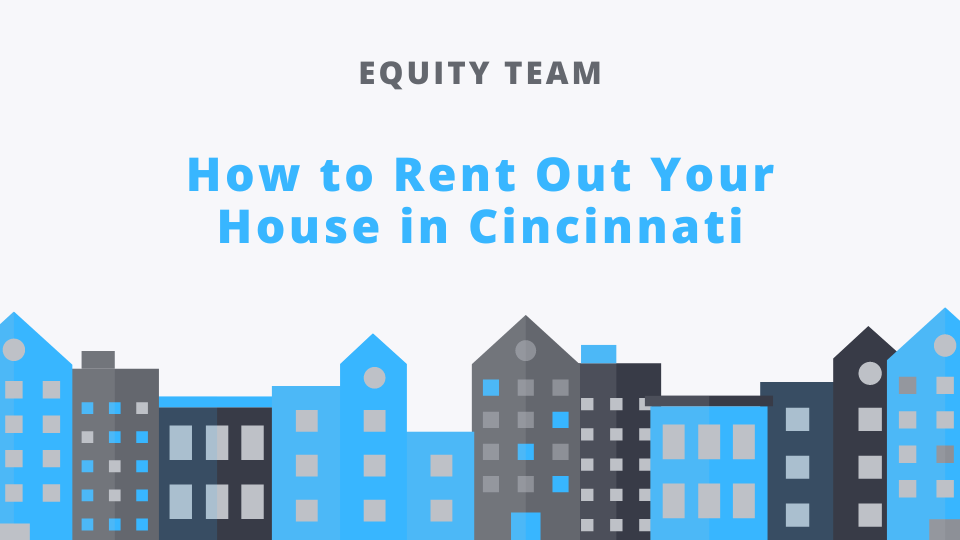
Are you a landlord in Cincinnati wondering how to effectively rent out your house and maximize your investment? You’re not alone. Renting out property can be both exciting and daunting, especially in a vibrant city like Cincinnati. From finding reliable tenants to navigating legal requirements, there’s a lot to consider.
Thankfully, in this comprehensive guide we’ll walk you through the process of renting out your house in Cincinnati. Whether you’re a new landlord or a seasoned investor, this article will give you valuable tips, expert advice, and actionable strategies to streamline the process and ensure your success.
1. Understand Ohio Landlord-Tenant Laws
Ohio’s landlord-tenant laws govern the rights and responsibilities of both landlords and residents in rental agreements.
When renting out your house it’s crucial for real estate investors to familiarize themselves with these laws to ensure compliance and protect their interests. For example, Ohio law dictates procedures for evictions, including reasons for eviction and the proper legal process to follow.
Understanding security deposit regulations is also essential, as Ohio law specifies the maximum amount you can charge for a security deposit and outlines requirements for returning it to your renters.
Additionally, Ohio has housing codes that rental property owners must adhere to, ensuring that rental properties meet certain standards of habitability.
2. Screen Tenants Thoroughly
When renting out your house, you need to obtain new renters. However, before allowing anyone to occupy your rental properties, you need to screen potential tenants. You must screen potential tenants as it’s a critical step in finding reliable renters who will take care of your property and pay rent consistently. Start by running credit checks to assess your applicants’ ability to meet monthly rent obligations.

You will also want to verify prospective tenants’ employment and income, as well as contact previous landlords for references. This can provide insight into the applicant’s rental history and behavior. A thorough tenant screening will help you to find the best possible renter for your rental property.
3. Set a Competitive Rent Price
Setting the right rental price when renting out your house is essential if you want to attract potential renters and maximize your ROI. Research local rental trends and compare your rental property to similar rental properties in the area to determine a competitive rate.
Consider factors such as location, size, amenities, and condition when setting the monthly rent rate. Pricing too high can deter prospective tenants, while pricing too low could mean you miss out on more passive rental income. By setting a competitive rental rate, you increase the likelihood of finding quality residents who are willing to pay the asking price.
When determining rent, landlords should consider several key costs. These include mortgage payments, property taxes, and landlord insurance. Routine maintenance and repair costs should also be factored in, along with utilities if the landlord covers them.
4. Prepare a Comprehensive Lease Agreement
A well-crafted lease agreement is a crucial tool for establishing clear expectations and protecting your rights as a landlord when renting out your house. The lease agreement should include key terms and conditions such as the rental amount, rent payment due dates, lease duration, and any rules or policies regarding the use of the rental property that align with the local laws.

The lease agreement should specify responsibilities for both landlords and residents, such as property maintenance duties and utilities. Address your policies on matters such as pets on the rental property, subletting, and security deposit procedures to avoid disputes later on. A comprehensive lease agreement helps prevent misunderstandings and provides a legal framework for the landlord-tenant relationship.
5. Maintain the Rental Property
Regular maintenance of your rental property is essential for preserving its value, ensuring renter satisfaction, and complying with Ohio’s housing codes. Conduct periodic inspections to quickly identify any maintenance issues or repair needs.
Addressing problems such as plumbing leaks, electrical issues, or appliance malfunctions helps prevent further damage and keeps the investment property in good condition.
Additionally, attend to landscaping and outdoor maintenance to enhance curb appeal and create a welcoming environment for renters. By staying proactive with maintenance, you demonstrate your commitment to providing a safe and habitable living space.
6. Handle Security Deposits Properly
Security deposits serve to protect landlords against damages or unpaid rent just like landlord insurance. In Ohio, there are specific regulations governing security deposits, including the maximum amount landlords can charge and the procedures for handling and returning deposits.
It’s essential to comply with these regulations to avoid legal issues and potential penalties. When collecting a security deposit, provide renters with a written receipt and clearly outline the terms for its return, such as deductions for damages beyond normal wear and tear.

At the end of the tenancy, conduct a thorough inspection of the rental house and return the deposit to the residents within the required timeframe, along with an itemized list of any deductions.
7. Communicate Effectively with Tenants
Open and transparent communication with residents is key to maintaining a positive landlord-tenant relationship and addressing any concerns or issues that may arise. Establish clear channels of communication, such as phone, email, or a dedicated residents portal, to make it easy for residents to reach out to their landlord.
Respond promptly to inquiries, requests for repairs, or other issues to show renters that their concerns are being taken seriously. Regularly communicate important information, such as upcoming maintenance or changes to policies, to keep residents informed and involved in the rental process.
By fostering open communication, landlords build trust with their residents and create a more harmonious living environment.
8. Stay Informed and Seek Professional Advice
Local landlord-tenant laws are constantly evolving, so it’s crucial to stay informed about changes that may affect your role as a landlord in Ohio. Keep up-to-date on relevant laws, Fair Housing Act regulations, landlord insurance policies, and local rental market trends through resources such as landlord associations, legal publications, and government websites.
When faced with complex legal or management issues, don’t hesitate to seek professional advice from a real estate attorney or a rental property management company, such as EquityTeam, or other experts in the field. Their expertise can provide valuable insights and guidance to help you navigate challenges and make informed decisions.
Final Thoughts
In conclusion, renting out your house in Cincinnati can be a rewarding venture with the right knowledge and resources. By understanding Ohio’s landlord-tenant laws, screening residents thoroughly, setting competitive rental rates, and maintaining effective communication, you can set yourself up for success.
Additionally, partnering with a reputable property management company like EquityTeam can streamline the rental process by offering services such as tenant screening, rent collection, maintenance coordination, and legal compliance, allowing you to maximize your investment while minimizing stress and hassle. Contact us today to learn more about our property management services!
